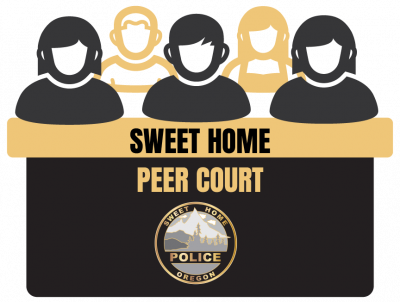-
City Services
-
Column 1
- Bids, RFPs & RFQs
- City Code
- Forms & Permits
- Start a Business
- Contracts
- Economic Development
- Project Management Dashboard
Column 2
Column 3
- Departments
- Executive
- Community & Economic Development
- Finance
- Human Resources
- Library
- Municipal Court
- Police
- Public Works
Column 4
- Boards & Committees
- Budget Committee
- Charter Review Committee
- Community Health Committee
- Library Board
- Park & Tree Committee
- Planning Commission
- Public & Traffic Safety Committee
- Youth Advisory Council
Opens in new windowPDF DownloadWord DownloadExcel DownloadPowerPoint DownloadDocument Download
-
-
Departments
-
Column 1
Column 2
- DEPARTMENTS
- Executive
- Community & Economic Development
Column 3
-
-
Community
-
Column 1
- About
- History
- Sweet Home Today
- Email Subscriptions
- Events and Activities
- Art Show in City Hall
- City Calendar
- Community Events
- Downtown Flags
- Sweet Home Farmers' Market
Column 2
- Chamber of Commerce
- Chamber Calendar
- Health Services
- Landlord & Tenant Resources
- Library
- Library Events
- Managed Outreach & Community Resource Facility
Column 3
- Public Safety
- Sweet Home Police Department
- Sweet Home Fire & Ambulance District
- Recreation
- Community Pool
- Parks and Recreation
- City Parks and Trails Directory
- Recreation Programs
Column 4
-
-
How Do I?
-
Column 1
- Apply for a Job
- Apply for a Passport
- Apply for a Special Event Permit
- Watch a Live-stream
- Contact the City
- Submit a Request or Concern
- View Staff Directory
Column 2
- Documents & Forms
- View Documents & Reports
- Adopted Budget
- View Forms & Applications
- File a Claim against the City
- Events & Meetings
- View Agendas & Minutes
- View Calendar
- Email Subscriptions
- View Press Releases
Column 3
- Report Storm Related Issues
- Report Streetlight Problem
- Report Water Main Breaks
- Volunteer
- View the Budget
Column 4
-
Peer Court
WHAT IS PEER COURT?
The Sweet Home Peer Court is an alternative court within the criminal justice system for juveniles who commit misdemeanors or violations. Youth may be referred to Peer Court by police officers, the Juvenile Department or the school resource officer.
After admitting their guilt, offenders can be accepted into Peer Court. Juries made up of junior and high school students hear their cases. After determining the facts of the case, each jury recommends a sentence for the defendant that is appropriate for the crime and the circumstances.
Juries are made up of volunteers and offenders. After sentencing, the Peer Court Coordinator monitors each case to assure that the offender complies with the sentence. Students who fail to comply with the sentencing are referred to the Linn County Juvenile Department.
The Peer Court's ultimate objective is to deter youth from the commission of second offenses...and by its example as a model for understanding justice and law, to prevent more first time offenses as well.
HOW PEER COURT WORKS
CRITERIA
In order to be eligible for consideration in Peer Court, the following conditions must be met:
- Offender is under 18 years of age
- First or second time offender
- Admission of guilt regarding the offense
- Consent by both offender and Parent/Guardian
Typical offenses heard by the court are:
- Minor in possession of Marijuana
- Minor in possession of Tobacco
- Minor in possession of Alcohol
- Littering
- Criminal Trespass
- Theft
- Criminal Mischief
- Reckless Burning
- Assault IV
- Disorderly Conduct
- Harassment
- Carrying a concealed weapon
PROCESS
When a police officer contacts an offender, they will be cited to appear before the Peer Court. Linn County Juvenile Department will schedule an interview with the offender and their parent or guardian to determine if the offender is eligible for the program and if they agree to complete the program.
An appearance date is scheduled, and the offender appears, with a parent or guardian, to have the case heard. The presiding Judge is a local adult or student volunteer who will ensure that all legal requirements are met. Students will act as Case Presenters, summarize the case, and present any circumstances that may affect the sentence. Finally, a jury composed of other student volunteers and former offenders will decide the appropriate sentence in the case.
Sentencing will typically involve community service, restitution when appropriate, and will always include future service as a peer court juror. At any point during the process, an offender who fails to carry out sentencing is automatically turned over to the Juvenile courts for prosecution. Peer Court allows the offender a "second chance" to avoid the system. The court may remove all record of the offense from the youth's legal record once the sentence is successfully completed.
SANCTIONS
The following are typical sanctions:
- Community Service hours shall consist of 0-40 hours
- Maximum number of words given for essay: 500
- Verbal or letter of apology
- Restitution
- All defendants must sit as a juror at least once per infraction
- Attend Life Choices Class
- Attend Victims Impact panel
- Attend Anger Management classes
- Attend Drug/Alcohol evaluation and follow recommendations
STUDENT VOLUNTEER FORM:

